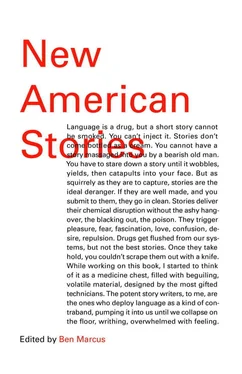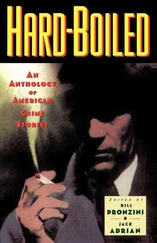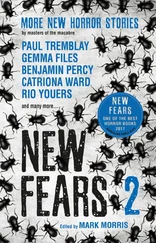— What’ll we do? asked Carr.
— I don’t know, said Harp. Let’s go.
The party poured out into the street, with the four young men ahead of the others. Indeed, the long tweed coat and brown dress of the girl could be made out just up ahead. It had snowed the day before, and drifts and piles lined the street. The girl walked there in the company of an older man.
— Let’s pelt them, said Harp.
He forced the brown gritty snow into a ball as the others did the same. Then with a shout, they ran forward, throwing the snowballs as hard as they could.
The first missed the man’s shoulder by an arm’s length. But the second struck him. He turned, face lit up with anger. The girl stopped too, and turned, and just at that moment, a snowball struck her hard in the face. In the moment before it struck a fact became plain to all of them: it was not the girl, but someone else, a woman of perhaps forty.
She tumbled down, falling heavily onto her back with a cry. The man started after them. What was there to do? They ran. Down the first alley, onto the next street, a right turn, a left, onto another street, onto another alley. They were young and in good health, so they made it safely away.
Carr woke to banging on the door to his flat. He pulled on a pair of pants and went to see what it was.
It was Harp.
— You’ve got to come with me. It’s bad. Come to Lubeck’s place.
Lubeck and Brennan, two of the four young men, lived near the river in a big house owned by Lubeck’s mother.
— Give me a second, said Carr.
He finished dressing and then the two were walking in the street.
— What is it?
— Lubeck got a letter. You’ll see. More than that, Harp wouldn’t say.
—
It was Lubeck’s mother let Carr in. Brennan came to the door too. Lubeck was sitting in a chair by the window.
— What is it? asked Carr. What happened?
Brennan took a letter off a side table and handed it to Carr.
— Read it for yourself, he said.
Dear J. Lubeck,
It is my understanding that you and three others, L. Carr, F. Brennan, and J. Harp, were on Sycamore Street last night where I went walking with my wife. You must understand that we were at the hospital much of the night. My wife has been caused to have a miscarriage. While I might take this matter up with the police, I prefer, as a gentleman, to meet with you and decide the matter by force. Your family has long lived in this town, so I believe you will honor your commitment. Come then, tomorrow morning, that is, December 5, to the racing track out past Elridge Green no later than six a.m. Bring a second, as I shall.
Most sincerely,
Judge Allen Henry
Lubeck’s mother called to Lubeck from across the room.
— You won’t fail us, will you, John?
— There’s nothing to do, said Lubeck, standing up, still looking out the window. There’s nothing to do.
— That’s right, said his mother. It’s the only thing.
She looked at them one by one — Brennan, Carr, Harp — full in the face.
— A thing like that, she said. It’s awful. There’s no choice in the matter. You’ve got to have it out or we can’t live in this town.
Lubeck’s brothers and sisters had come into the room. There were eight of them of various ages. Lubeck’s stepfather also had come in.
— A bad business, a bad business, he said, and pulled at his mustache. Seems to me you deserve what you get.
— That’s right, said Lubeck’s mother.
— These days, what with automobiles and propeller airplanes, the power of man is getting stronger and stronger, said Lubeck’s stepfather. If he doesn’t learn some moral strength, it’ll all be as unjointed as a scarecrow.
— I don’t even know what you’re saying, said Lubeck.
— Suit yourself, said Lubeck’s stepfather.
— This is a very very bad thing, said Brennan.
— It’s a very bad thing, all right, said Lubeck’s mother.
—
The next morning, Carr went with Lubeck. Brennan had refused, and though Harp had wanted to come, Lubeck wouldn’t have it.
— You’ve got to come along, Lubeck had told Carr. Just you.
They took Lubeck’s stepfather’s automobile and drove out from the town. The morning light where the snow still held was strong in their eyes, and they squinted as they came.
Soon they reached the track. A car could be seen through the bare trees and a few figures beside it.
Lubeck pulled in and stopped the engine.
—
— The pistols are there, the man said.
He was as old as the Judge. Both wore overcoats over dark suits. Both wore hats and thin leather gloves. They had laid a soft cloth over a portion of the car’s hood. On the cloth were two revolvers. The scene was very dignified. One would want, as a child, to be old enough to take part in such a thing, to be there in the heaving coldness of morning, in the careful grace of winter, though of course, the true penalty of death cannot be considered in its depth by such a little fool as a child. No, no.
— Either, said the Judge.
— What?
— You can take either.
The Judge’s second walked out and drew two lines in the earth of the cinder track, about twenty feet apart. He called Carr over.
— The way this thing is going to get done, well, this is it. Lubeck and Judge Henry will wait, each some yards behind their line. At our word, each approaches his line. When the line is reached, they begin to fire.
— How many shots can they…?
— Eight in each revolver. If they both run out, we start again. He looked at Carr with disgust.
— You were with him, weren’t you? You’re one of them?
— I, well…
The man turned his back on Carr and approached the place where the Judge was waiting.
— All set, he said.
Judge Henry motioned to Lubeck to take a pistol from the hood. Lubeck hesitated, then chose, lifting the gun uncertainly.
Carr was at his side. They took a few steps together away from the others.
— You can leave. You don’t have to do this, he said quietly. Leave the town. Leave the country.
Lubeck looked at him and then away.
— Tell them I’m ready.
—
— To your posts, said the Judge’s second.
The Judge and Lubeck stepped out onto the track.
Carr felt as if someone were squeezing all the air out of his body. Things became slow and strained. He heard the man call “Now!” and watched as Lubeck and the Judge advanced, step by step. Near the lines, they raised their pistols. They pointed their pistols at each other. Carr couldn’t breathe. He was held there, without breath, as the shots began. Lubeck fired and fired. The Judge fired, fired again. Both continued advancing. The noise was incredible. He felt he had never heard anything so loud. Lubeck fired and the Judge flinched, and then they were just walking at each other. The Judge let out three shots in a row. The shots poured from his revolver. Lubeck was not firing. His face was turned away. The first shot came. The second shot came. The third shot came, and Lubeck was backward off his feet.
Carr ran out onto the track. He slowed his pace as he drew closer. The bullet had taken Lubeck high in the cheek and gone straight through his head. The face was a bloody wreck. He was no longer there.
Carr realized he had started to breathe again. He turned. The Judge and his second were conferring. The second came over, passed Carr, knelt by Lubeck’s body. He was taking the pistol back. He removed the pistol from Lubeck’s hand, opened it, dropped the spent shells on the ground, and walked away.
Then he paused.
— You, the second said. Give this to Brennan. It was a letter.
Читать дальше










![Женя Джентбаев - neo futura [stories]](/books/692472/zhenya-dzhentbaev-neo-futura-stories-thumb.webp)

